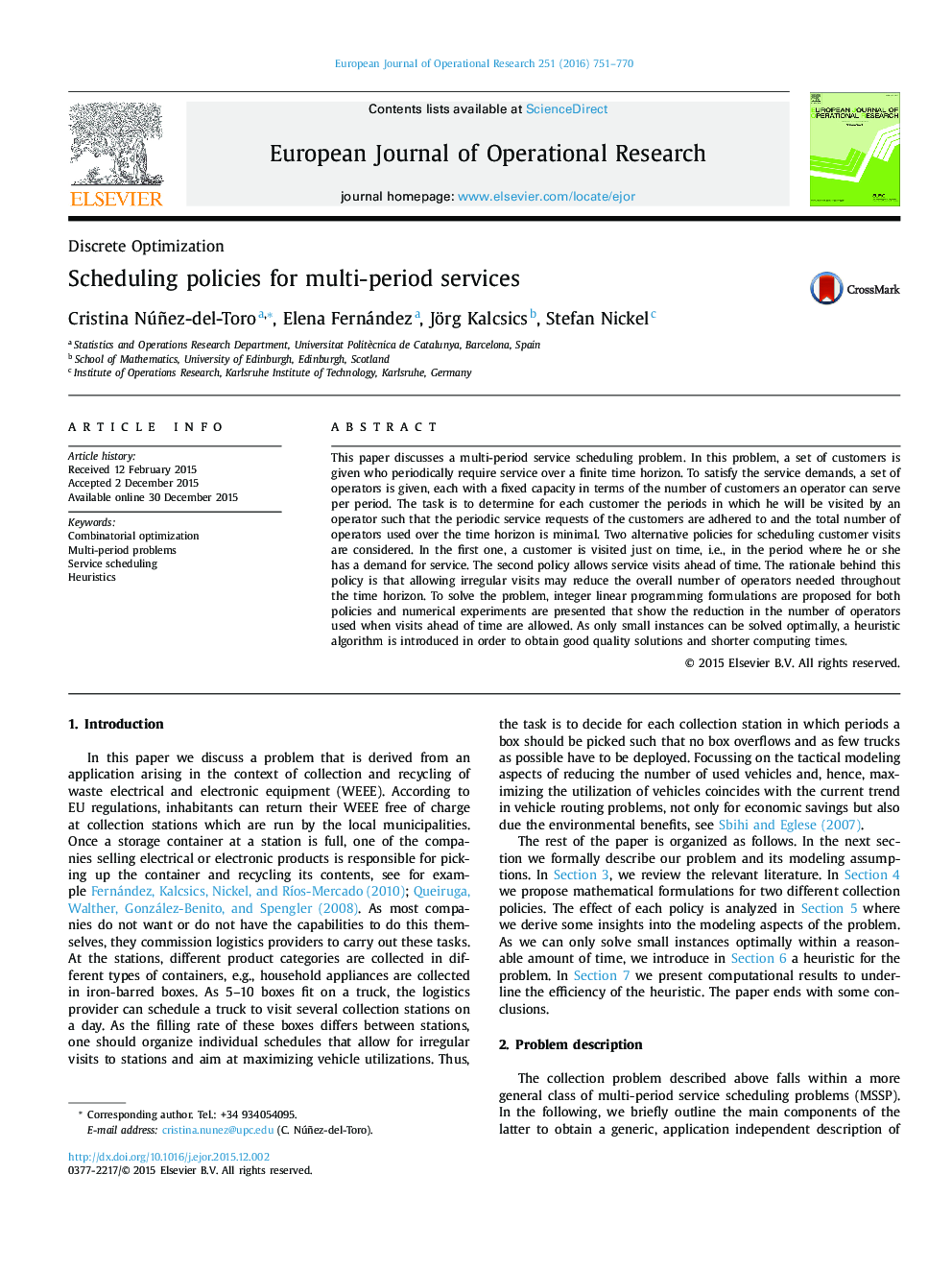| Article ID | Journal | Published Year | Pages | File Type |
|---|---|---|---|---|
| 477910 | European Journal of Operational Research | 2016 | 20 Pages |
•A new multi-period service problem is introduced and scheduling policies studied.•Integer programming formulations are proposed and analyzed.•A heuristic solution algorithm is presented.•Numerical results from extensive computational tests are presented and analyzed.•Computational experiments underline the quality and effectiveness of the heuristic.
This paper discusses a multi-period service scheduling problem. In this problem, a set of customers is given who periodically require service over a finite time horizon. To satisfy the service demands, a set of operators is given, each with a fixed capacity in terms of the number of customers an operator can serve per period. The task is to determine for each customer the periods in which he will be visited by an operator such that the periodic service requests of the customers are adhered to and the total number of operators used over the time horizon is minimal. Two alternative policies for scheduling customer visits are considered. In the first one, a customer is visited just on time, i.e., in the period where he or she has a demand for service. The second policy allows service visits ahead of time. The rationale behind this policy is that allowing irregular visits may reduce the overall number of operators needed throughout the time horizon. To solve the problem, integer linear programming formulations are proposed for both policies and numerical experiments are presented that show the reduction in the number of operators used when visits ahead of time are allowed. As only small instances can be solved optimally, a heuristic algorithm is introduced in order to obtain good quality solutions and shorter computing times.
